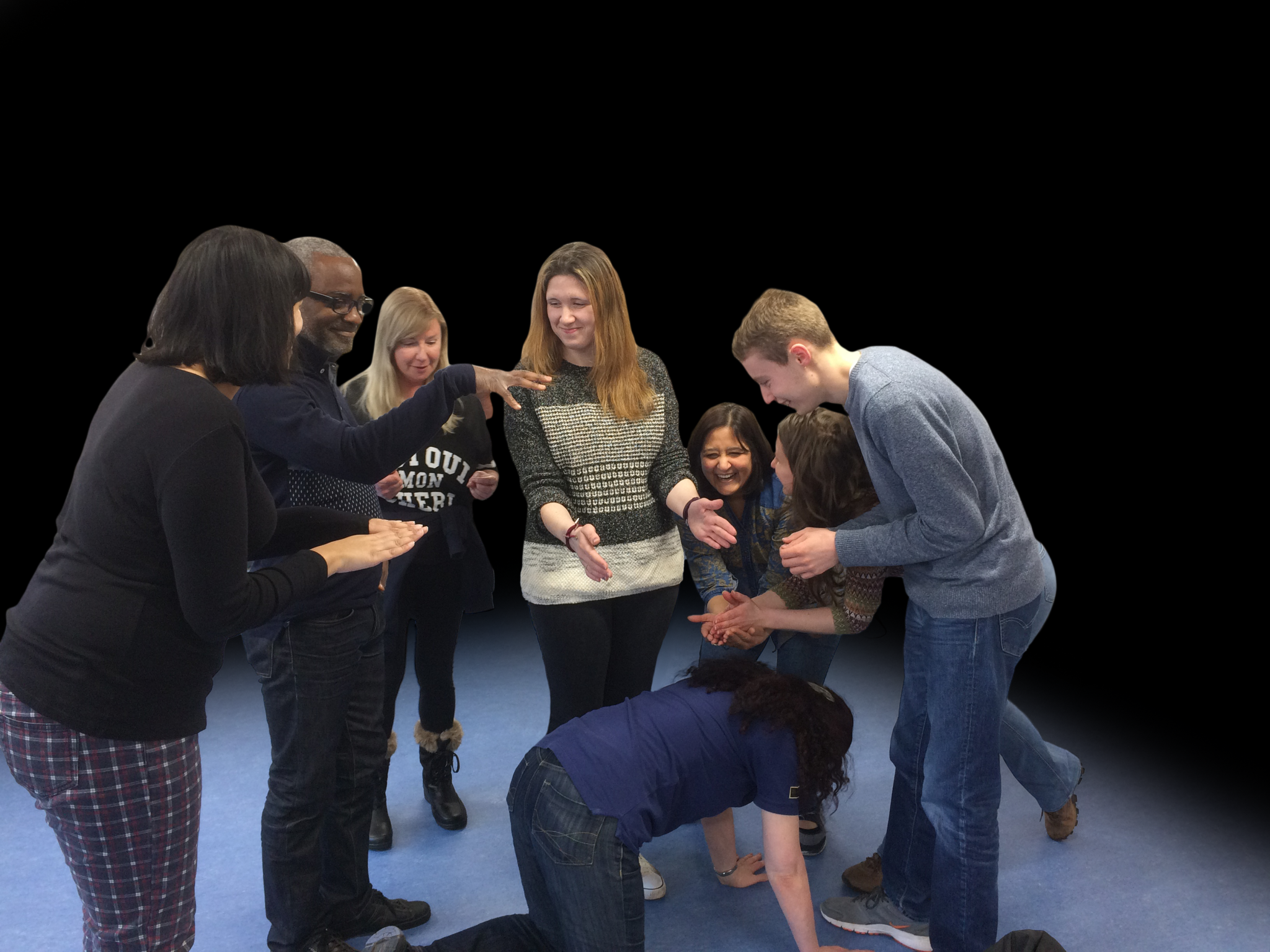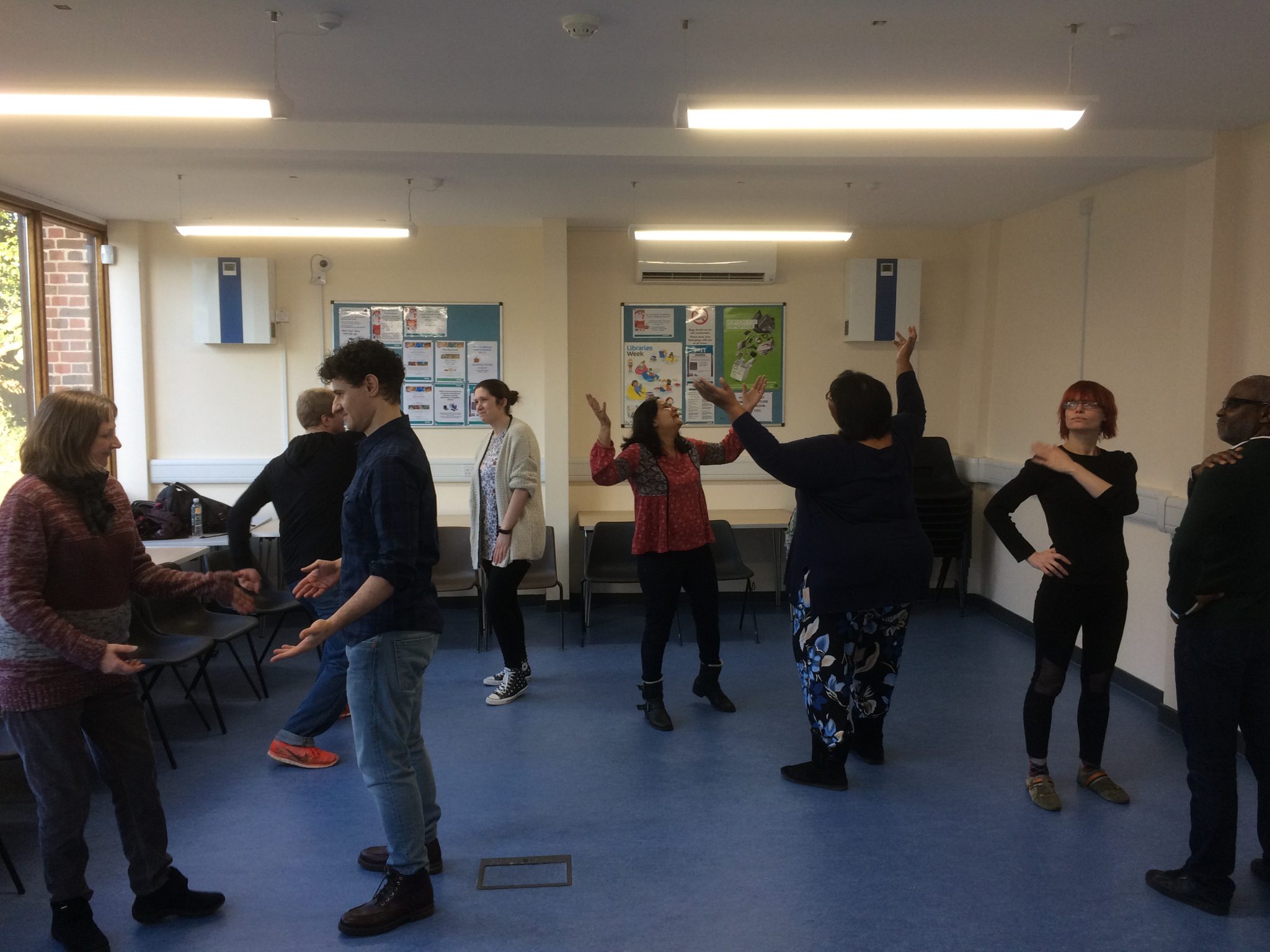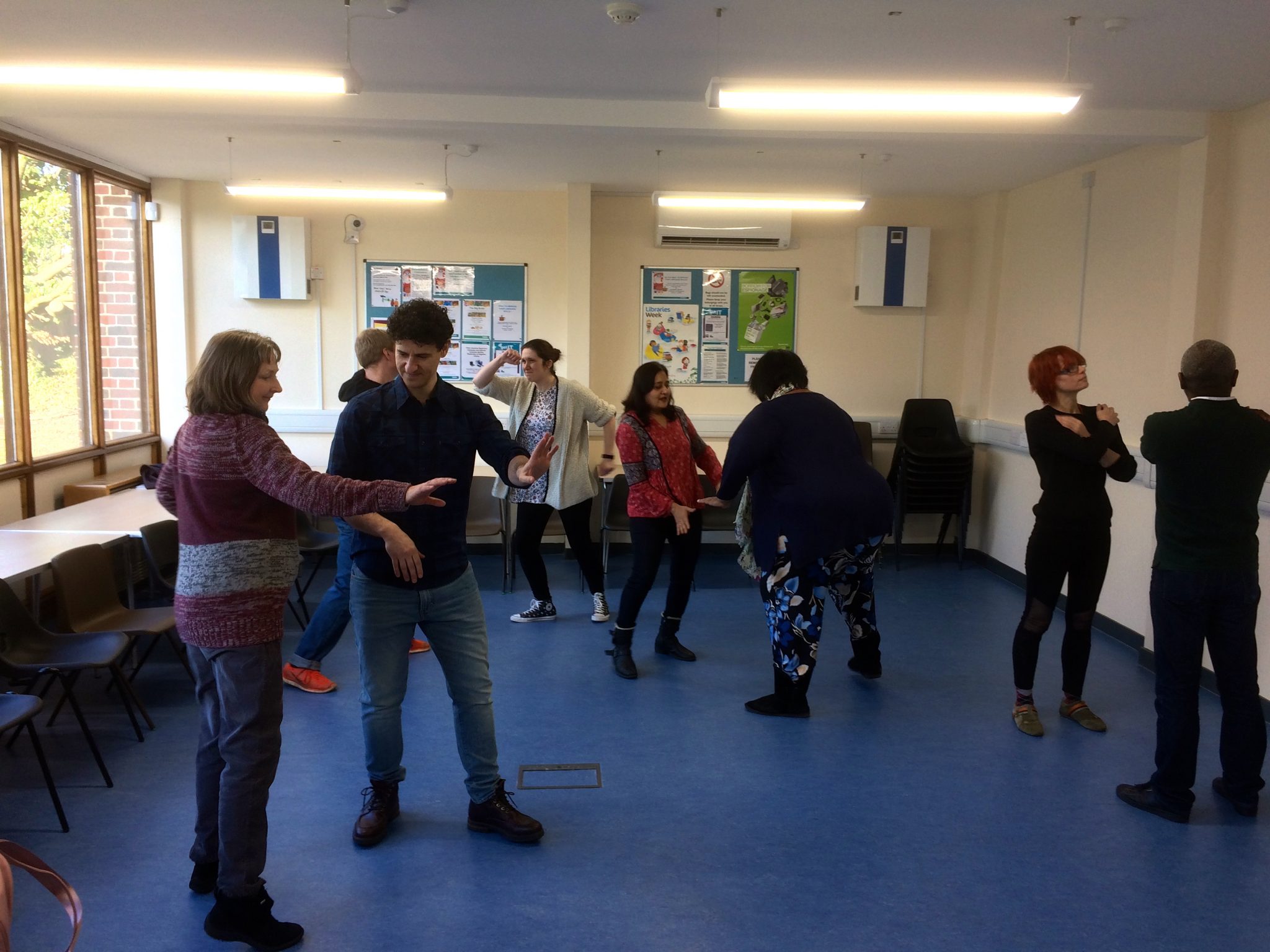
Creativity in your Organisation Using Improvisation
Businesses are trying to get an edge by innovating. Outside of technology, utilising the creativity of the workforce on the mind of all organisations. ‘Improv1 for Organisations’ is an excellent tool for creativity, collaboration, flexible mindsets and teamwork.
“Applied improvisation uses the principles, tools, skills, and mind-sets developed from theatre, which exemplify the process of collaborative creativity”
All types of complex organisations are trying to get an edge in their products and services. For example:
- Outsource organisations looking to get up the value chain;
- Service industries trying to be more innovative;
- Large organisations with a highly-engaged workforce by ensuring well-being.
Technology is a huge enabler for innovation, however a creative and open mindset is the foundation that will allow an organisation to truely flourish.
75% of people think they’re not living up to their creative potential inside organisations. 2
60% of employees at some point have had a well-being issue related to their work in the UK 3
24 days a year are lost from every case of anxiety or depression in the workplace. Stress, depression or anxiety accounted for 40% of all work-related ill health cases 4
Several Studies have shown that the ability to be creative in the right environment can lead to a level of well-being in organisations beyond expectations5.
Here are some typical challenges that organisation face due to a lack of well-being, creativity, or flexibility:
- A company is suffering from a high turnover of staff due to work-stress. One of the main causes of this is that trust has disappeared – there are misunderstandings between employees, and sometimes-open warfare between departments.
- A company has challenging demands from its customers. It needs a team to work in a more agile and flexible way in order to resolve those demands, but has no method on how to create this more flexible mindset. The company talks about being agile but employees talk about stress.
- A company is suffering from a shortage of new ideas or innovations. The role of Innovation has been given to an ‘innovation director’ but things on the ground are the same as before – in fact new ideas are often rejected by staff.
- A company talks about collaboration and has introduced many IT tools to allow this to happen. However staff use the tools to demonstrate ‘busyness”, rather than work in truly collaborative way, as their minds still are based around silo thinking.
Applied Improvisation, or ‘Improv’, is a form of exercise in which the plot, characters, and dialogue of a game, process, or story are made up spontaneously. There are no lines to rehearse and the process is highly creative. Most importantly, no acting skills are required. Applied Improvisation seeks to use this highly valuable tool outside from its origin in theatre to support businesses and individuals.

The skills of improvisation can help with better management of unexpected changes and uncertainty. They improve collaboration, build confidence, and increase the ability to absorb new ideas. It is highly recommended for ‘well-being’.
Exercises and games used in applied improvisation are designed to encourage risk-taking, playfulness, and ‘being in the moment’. Participants will find that they are having fun whilst also developing or challenging their existing mind-set.

There are some very specific benefits of Improv that are intrinsic in its method:
- Collaboration – Improv’s practice is to make the other person ‘look good’ by building on their work.
- Teamwork – Improv intuitively relies on teamwork – it is structurally set up in this manner.
- Spontaneity – Improv asks you to act first and think later – tapping into tacit knowledge.
- Fast Failure and Moving on – Improv has tools that encourage following the process of failure with new beginnings.
- Insight – Improv provides insight into why certain thoughts arise during scene work and what the unconscious mind brings out when on stage.
Improv is a practised skill not based on pure reasoning, and this is where its practical benefits lie. You don’t need to be witty, a comedian, or even necessarily sharp. The skills of listening and collaboration are innate in human beings and only need a ‘stage’ to be further developed.

Every organisation would like a Steve Jobs, however what is needed is creativity to exist from the bottom up and throughout the organisation. Creativity is something that needs embedding via a method, and Improv is a practical method to allow this.
Ketan Varia is a member of the Applied Improvation Alliance. He runs regular improvisation classes on Saturdays in London. He also offers Improv as a method for organisational development. He has worked in the field of operational excellence and transformational change for over 20 years.
Improv for Start Up Organisations: Improv will help start-ups boost mindset and meet their purpose faster.
Improv for Organisation Well Being: Your staff will have increased confidence, be better equipped to deal with unexpected situations and be open to new ideas.
Learn more about how Applied Improvisation can be harnessed to benefit your organisation here.
- Improv as a method and sport was started by in modern times by Keith Johnstone. See https://www.keithjohnstone.com
- Parekh, Rupal. ‘75% of people think they’re not living up to creative potential’, Ad Adage. Accessed April 2017.
- ‘Mental Health at Work 2017’. The Prince’s Responsible Network. Oct 2017
- ‘Work-related Stress Depression or Anxiety Statistics in Great Britain 2017’. Health and Safety Executive. November 2017.
- Farida Rasulzada & Ingrid Dackert, ‘Organizational Creativity And Innovation In Relation To Psychological Well-Being And Organizational Factors’. Creativity Research Journal, Volume 21, 2009 – Issue 2-3.